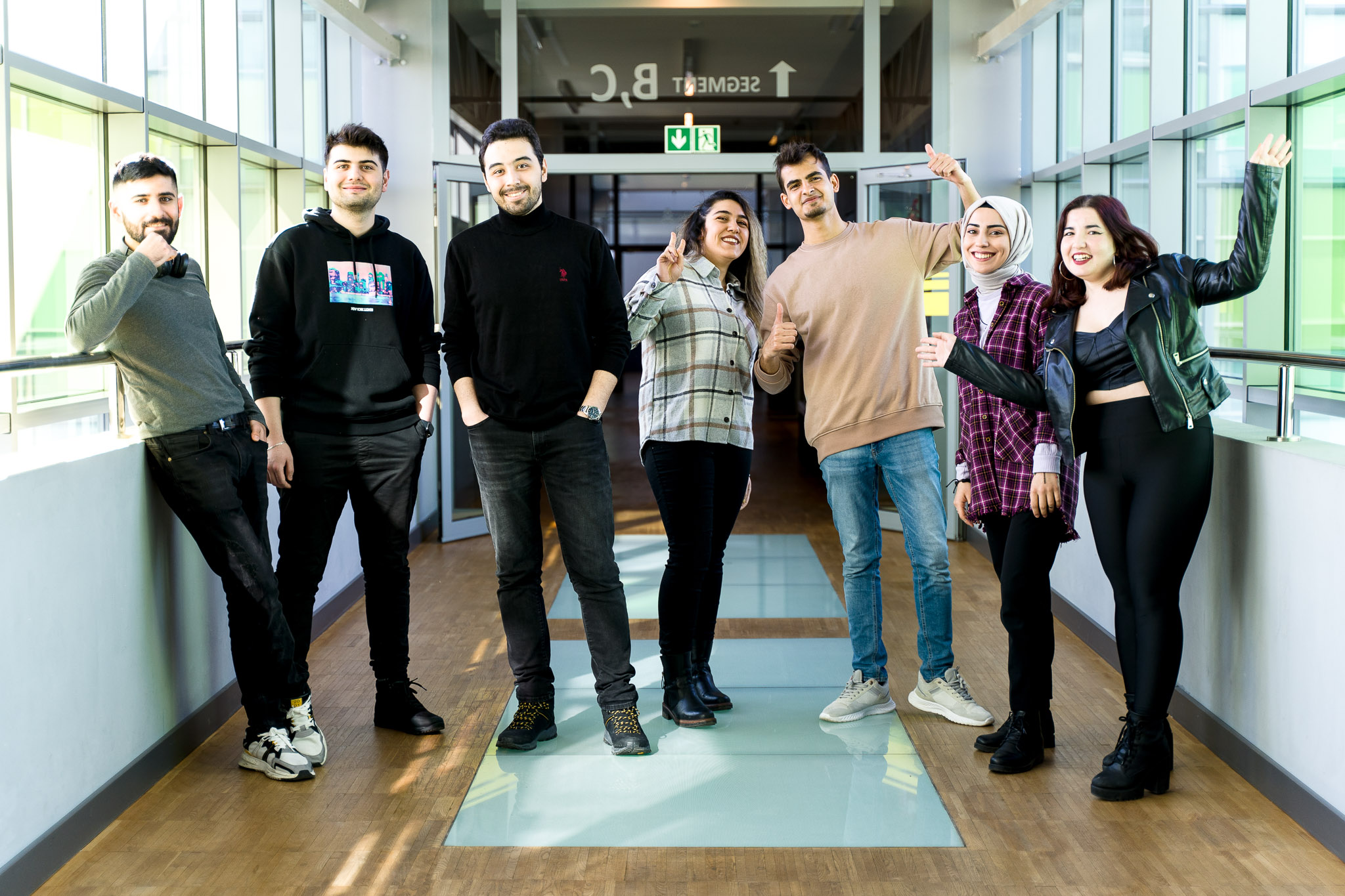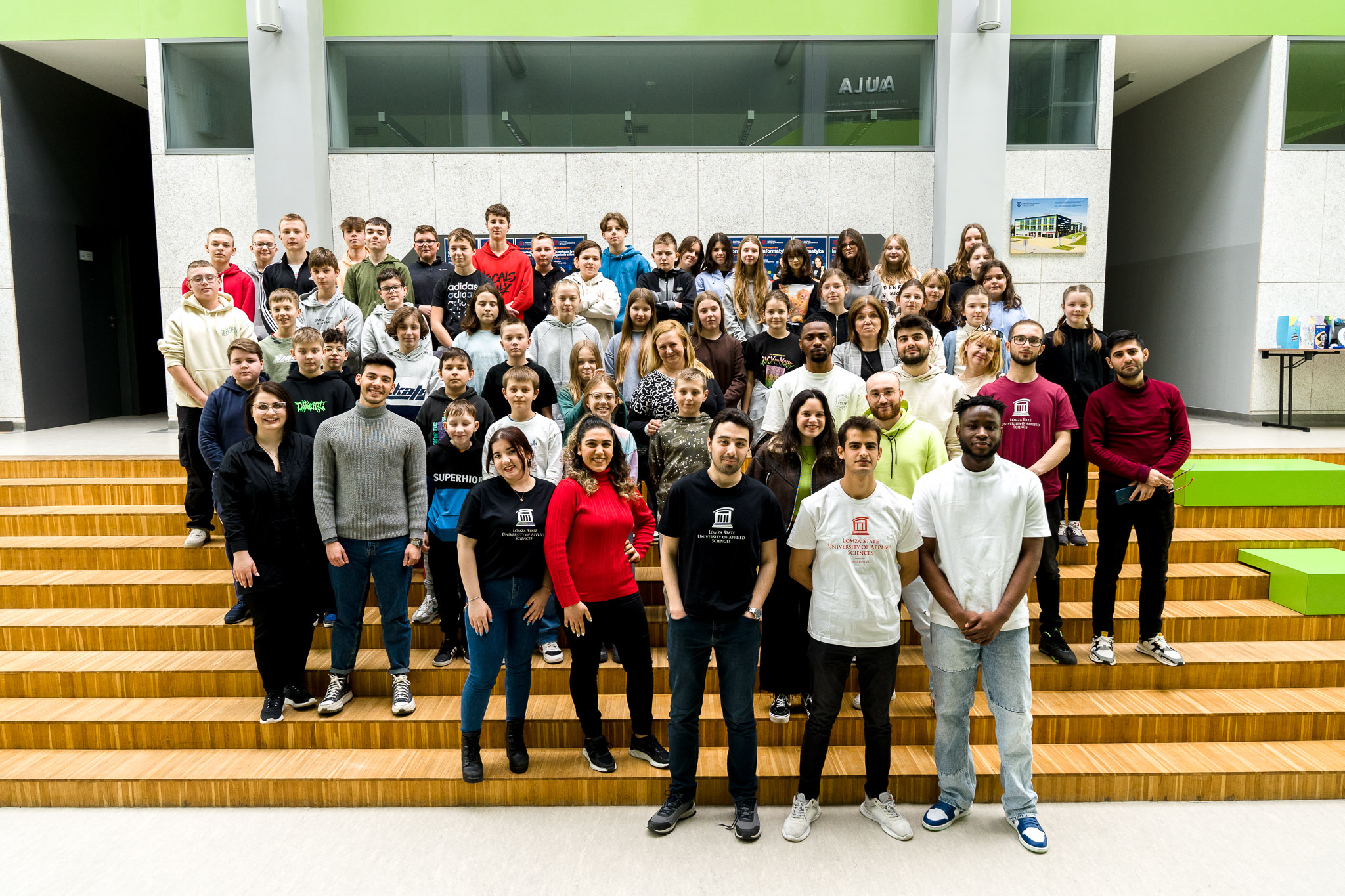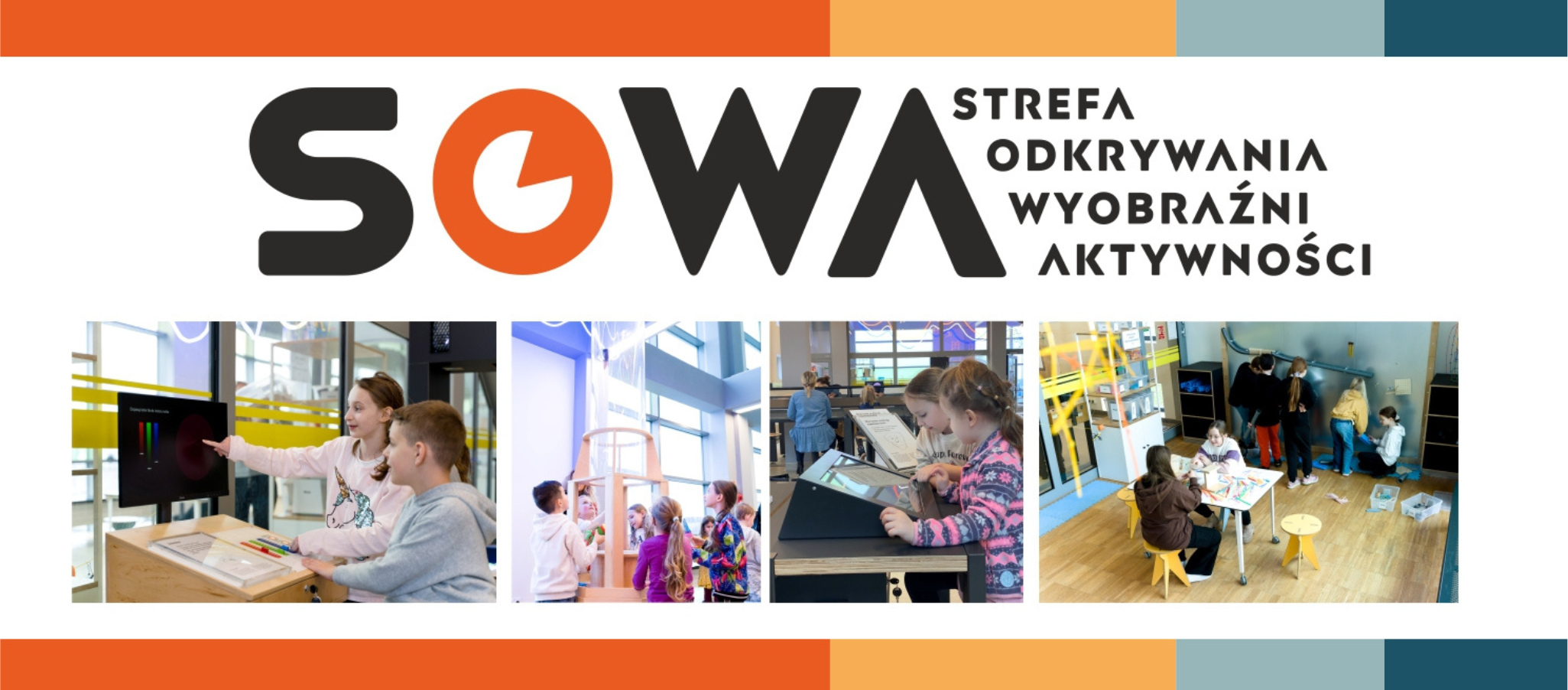Welcome
Welcome from the Rector
University of Lomza is a unique place of high reputation, which is proud of its scientific and educational resources. Its unusual ambience of friendliness and empathy fosters intellectual and social development of the students and staff. Studying at our University means being a part of a special multidimensional world, wherein the needs of students matter, and everyday interactions with the University personnel are something natural and pleasant. Every student is respected and appreciated at our University. The academic community believes that University of Lomza changes people and brings out their best qualities in the process of broadening the knowledge.
For years, a prestigious ranking of “Perspektywy” magazine has placed our University among top ten Universities of Applied Sciences in Poland. It is a great honour but also a really important challenge for us. Our greatest assets are practical study programmes which are tailored in association with potential employers and students. They are adjusted to the current and future needs of the dynamically changing labour market. Cooperation with numerous entities of business environment, governmental, and non-governmental organizations as well as the public sector offers our alumni attractive career prospects.
I would like to invite you on a short yet splendid intellectual journey with distinguished lecturers, practitioners, and specialists in the world of science guiding you. Together with your lecturers you will be searching for solutions, sharing ideas, and developing creativity but, first and foremost, nurturing your professional and scientific ambitions, passions, and aspirations in a comforting, welcoming atmosphere.
I believe you will have a very positive experience at our University and that you will soon decide to join our exceptional academic community.
Rector,
Prof. Dariusz Surowik
Welcome to Poland and Łomża
For the last thousand years, the Republic of Poland has been the country where cultures from the East and West of Europe initially connect.
Poles have always played important roles in the history of many nations. A democracy located in the middle of Europe, inhabited by friendly and hospitable people who are building a modern economy, yet cherishing their heritage dearly.
Poland is a garden of nature and a treasure trove of cultural riches. Poland’s natural environment makes active rest and recreation possible at any time of the year. In many regions of Poland there are natural sites preserved in their primeval state rarely encountered in other parts of Europe.
Visitors feel truly welcome in Łomża and Poland where they experience our traditional Polish hospitality.
Łomża - a city located in north-eastern Poland, in the Podlaskie Voivodeship, by the Narew River. The city is located in historic Mazovia region. Łomża is the main economic, educational and cultural centre of the Lomza District and the third largest city in the Podlaskie region. Łomża is located in the area of the ‘Green Lungs’ of Poland, in the vicinity of the city, where there are several parks and monuments of nature ready to be visited.
Faculty of Social Sciences and Humanities
The Dean
PhD Natalia Malenko
e-mail:
The Vice-dean
PhD Magdalena Forfa
e-mail:
Faculty Erasmus+ Coordinator
PhD Izabela Sekścińska
e-mail:
The Faculty offers the following programmes:
Management
Departmental Erasmus+ Coordinator:
MA Michał Bąkowski
e-mail:
Mode of study: full-time and part-time
Degree structure: first-cycle (3 years, 6 semesters)
Development paths:
- SME management
- Project management
- Logistics management
- Management accounting
Degree structure: second-cycle (2 years, 4 semesters)
Development paths:
- Management in trade and services
- Enterprise financial management
- Logistics customer service
Management – a field for the creative and ambitious. Studying Management provides personal and social development as it represents interdisciplinary knowledge: economics, finance, banking, marketing, and business law. The market still lacks specialists with practical skills in this field. These are studies for people who showcase leadership and organizational skills, who are able to think strategically and are not afraid to take risks. Management is primarily analysing, planning, implementing, and monitoring the strategies set by the company.
Social Work
Departmental Erasmus+ Coordinator:
PhD Edyta Lichomska-Milewska
e-mail:
Mode of study: full-time and part-time
Degree structure: first-cycle (Bachelor’s degree)
Programme: 3 years (6 semesters)
Social Work is a field for people who are motivated to act. For those for who the wellbeing of another person is the highest good. Social worker everyday encounters problems facing various people who require support. The profession of a social worker requires constant development and raising of one’s qualifications. Social work studies are enriching in many areas of knowledge, among others, in philosophy, sociology, psychology, science, economics and law. The program is enhanced by practical knowledge and possibility to acquire qualifications during internships
English Philology
Departmental Erasmus+ Coordinator:
MA Mateusz Turski
e-mail:
Mode of study: full-time and part-time
Degree structure: first-cycle (Bachelor’s degree)
Programme: 3 years (6 semesters)
Development paths:
- Teaching
- Translation
- English in Business
English Philology allows students to learn the linguistic and cultural nuances of English-speaking countries.
By studying at our University, in addition to the practical ability to communicate in English, you will gain knowledge in many different fields: linguistics, literature, and cultural studies of British and American English, methodology of teaching English as a foreign language, IT aid skills, translation studies, and the organization of the tourism movement.
English Philology is a field of study for people who value diversity, who are open to intercultural dialogue. The graduates undertake work in the translation agencies, the tourism industry as well as in international corporations, or they can choose an autonomous work model and set up their own translation agency or a language school in order to provide professional services on the free market.
Depending on the chosen specialization, holders of the English Philology Degree can work as teachers in both public and private education centers, they can also find employment in newspapers, publishing houses, mass media, and advertising agencies. Researchers of English language are recruited in research facilities, libraries, and archives.
Pedagogy
Departmental Coordinator:
PhD Monika Surawska
e-mail:
Mode of study: full-time, part-time
Degree structure: first-cycle (Bachelor’s degree)
Programme: 3 years (6 semesters)
Development paths:
- Professional and educational counselling
- Pedagogy of care
- Social rehabilitation pedagogy
Degree awarded: Bachelor
Pedagogy is a field chosen by reflective and creative people who intend to exert a positive influence on future generations, are interested in educational processes and social modelling mechanisms. Knowledge acquired during these studies is interdisciplinary and prepares you to work in a hybrid world – combining real and virtual reality.
The innovative character of the studies on a national scale is reflected in educational programs that take into account contemporary civilization changes and atypical phenomena of the 21st century – cyberbullying, patostream, symbolic and real forms of social isolation of young people.
Pedagogy alumni may find employment in educational and care centres, nursing homes, addiction treatment facilities, resocialization and socio-therapeutic facilities, nurseries, non-governmental organizations, penitentiary institutions, courts, labour market institutions, and social assistance centres.
Faculty of Health Sciences
The Dean
PhD Ewa Polkowska
e-mail:
The Vice dean
PhD Joanna Chilińska
e-mail:
Faculty Erasmus+ Coordinator
PhD Sławomir Prokopiuk
e-mail:
The Faculty offers the following programmes:
Nursing
Departmental Erasmus+ Coordinator:
MA Martyna Turowska
e-mail:
Mode of study: full-time and part-time
Degree structure:
- first-cycle (Bachelor’s degree)
- second-cycle (Master’s degree)
Programme: 3 years (6 semesters) – first cycle
2 years (4 semesters) – second cycle
Nursing is one of the most difficult, responsible and also one of the most beautiful professions endowed with social trust. Nursing care is a nurse’s practical activity, which consists of providing professional help, accompanying people in health and illness, shaping patients’ ability for self-care and self-nursing so that people can live in com-fort or despite their illnesses, suffering, physical disability.
Cosmetology
Departmental Coordinator:
PhD Patrycja Mościcka
e-mail:
Mode of study: full-time and part-time
Degree structure: first-cycle (Bachelor’s degree)
Programme: 3 years (6 semesters)
Cosmetology is a branch of medical science that deals with prevention, of which aim is to delay outward signs of aging and to correct or restore the beauty of the body through skin-care, beauty and healing treatments. It is now one of the fastest growing areas of interdisciplinary studies. A student of Cosmetology explores not only the secrets of body care, but also learns how to provide comprehensive advice on healthy lifestyle. A wide range of knowledge of our graduates enables them to find job in various areas connected with both the production of cosmetics and beauty care.
Dietetics
Departmental Erasmus+ Coordinator:
PhD Marta Pawelczyk
e-mail:
Mode of study: full-time and part-time
Degree structure: first-cycle (Bachelor’s degree)
Programme: 3 years (6 semesters)
A dietitian is a profession with future, a profession with a social mission, a profession which creates broad prospects for employment in an era of increasing public awareness of proper nutrition. A dietitian’s job is connected not only with great responsibility for patients’ health, but also with great satisfaction from working with people and finding joy in their patients’ success. A dietitian is responsible for dietary therapy, which is essential to the treatment of a lot of diseases. He/she educates on proper nutrition and preventive health care, assesses food quality, and its nutritional and health benefits, and sets up diets for various sport disciplines.
Physiotherapy
Departmental Erasmus+ Coordinator:
PhD Joanna Chojnowska
e-mail:
Mode of study: full-time and part-time
Degree structure: second-cycle (Master’s degree)
Programme: 5 years (10 semesters)
Physiotherapy is a medical field of study connected with health protection. It enables students to gain knowledge, which is essential for developing, sustaining, restoring physical capability and mobility of people of all ages who have lost it as a result of various illnesses or injuries. A physiotherapist has to stop progressive changes in the body, improve physical mobility and conduct preventive activity by using appropriate physiotherapeutic treatment, massage and exercise.
Physical Education
Departmental Erasmus+ Coordinator:
PhD Paweł Arnista
e-mail:
Mode of study: full-time and part-time
Degree structure: first-cycle (Bachelor’s degree)
Programme: 3 years (6 semesters)
Specializations:
- Instructor and coaching
- Physical education and health
While studying Physical Education, the student gains knowledge and develops his/her passion for sport, which he/she will use in his/her private life after graduation. A graduate of Physical Education has knowledge of psychology, pedagogy and biology, which enables him/ her to understand developmental processes, as well as processes of socialization, education, didactics and methodology. He/she has practical skills and competencies necessary for working with children, teenagers, adults and seniors. He/she is prepared to carry out professional tasks resulting from the role of the teacher in the field of physical activity, health promotion, as well as independent planning, implementation and evaluation of physical activity.
Food Technology
Faculty Erasmus+ Coordinator
PhD Piotr Karpiński
E-mail:
Mode of study: full-time and part-time
Degree structure: first-cycle (engineer)
Programme:
First cycle engineer 3,5 years (7 semesters),
Second cycle Master’s, 1,5 year (3 semesters)
Food Technology is one of the most interesting fields of study offered by universities. Studies prepare technologists and analysts of the food industry, fermentation and nutrition, services of official food control, as well as researchers. An important element in students’ education is the hall equipped with technological modern machinery and processing equipment of food technology and nutrition and laboratories of chemical, physicochemical and microbiological analyses used to carry out multi-studies assessing the quality and safety of food.
Food Safety and Quality Management
Faculty Erasmus+ Coordinator
PhD Piotr Karpiński
E-mail:
Mode of study: full-time and part-time
Degree structure: first-cycle (engineer)
Programme:
First cycle engineer 3,5 years (7 semesters)
Our first level studies in Food Safety and Quality Management is designed for food enthusiasts and also these who are already working in food manufacturing and wish to boost their career with a new qualification.
Within this field of study, you will learn about the requirements for providing safe and wholesome food to consumers with our specialist course in applied food safety and quality management. We follow the farm-to-fork approach to address a wide variety of food safety and quality management issues.
Faculty of Computer Science and Technology
The Dean
PhD, Eng. Aneta Wiktorzak
e-mail:
Faculty Erasmus+ Coordinator
PhD, Eng. Andrzej Sawicki
e-mail:
The Faculty offers the following programmes
Computer Science
Departmental Erasmus+ Coordinator:
PhD, Eng. Tomasz Kuźmierowski
e-mail:
Mode of study: full-time and part-time
Degree structure:
- first-cycle (engineer)
- second-cycle (master’s)
Programme:
- 3,5 years (7 semesters) – first cycle
- 1,5 year (3 semesters) – second cycle
Specialities - first-cycle programme:
- Programming Systems
- Computer Graphics and Multimedia Techniques
Specialities - second-cycle programme:
- Mobile Systems,
- Industrial Informatics
Graduates have modern knowledge and skills in general computing issues and extended knowledge and technical skills in the field of computing systems. They know the principles of operation and construction of computer equipment as well as have the skills of computer programming, database design, computer networking. Also they know the security mechanisms and can put them to use in computer systems.
Automation and Robotics
Departmental Erasmus+ Coordinator:
PhD, Eng. Rafał Melnik
e-mail:
Mode of study: full-time and part-time
Degree structure: first-cycle (engineer)
Programme: first cycle engineer 3,5 years (7 semesters),
Specialities:
- Automation of Processes
- Mechatronics
- Consumer Robotics
Graduates in the field of Automation and Robotics specialty Automation of Processes possess modern know-ledge of and skills in general issues in computing and robotics as well as the knowledge and technical skills in automation of processes.
Mechatronics
Departmental Erasmus+ Coordinator:
PhD, Eng. Rafał Melnik
e-mail:
Mode of study: full-time and part-time
Degree structure: first-cycle (engineer)
Programme: first cycle engineer 3,5 years (7 semesters)
The graduate acquires interdisciplinary knowledge of mechanics, robotics, electrical engineering, and computer sciences. Students of Mechatronics obtain the skills to design and program mechatronic systems. Graduatues perfect the skills to use microcontrollers and programmable controllers in industrial settings.
Logistics
Departmental Erasmus+ Coordinator:
PhD, Eng. Rafał Melnik
e-mail:
Mode of study: full-time and part-time
Degree structure: first-cycle (engineer)
Programme: first cycle engineer 3,5 years (7 semesters)
Page 7 of 26







